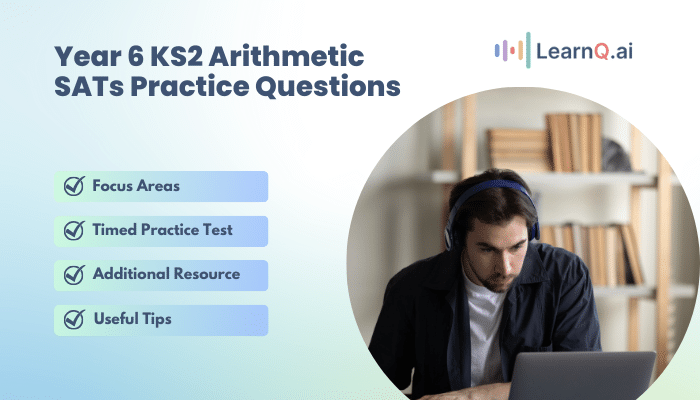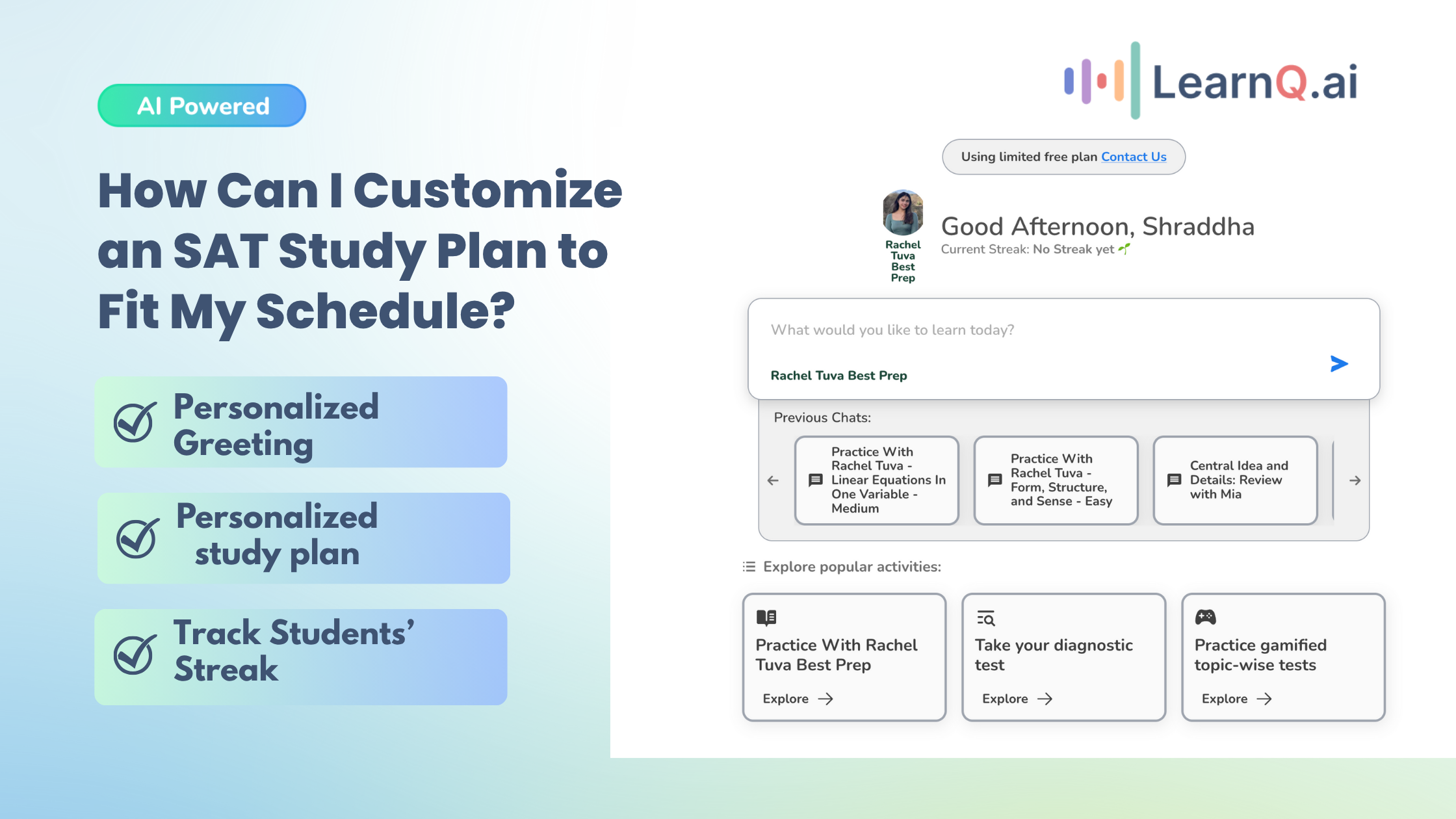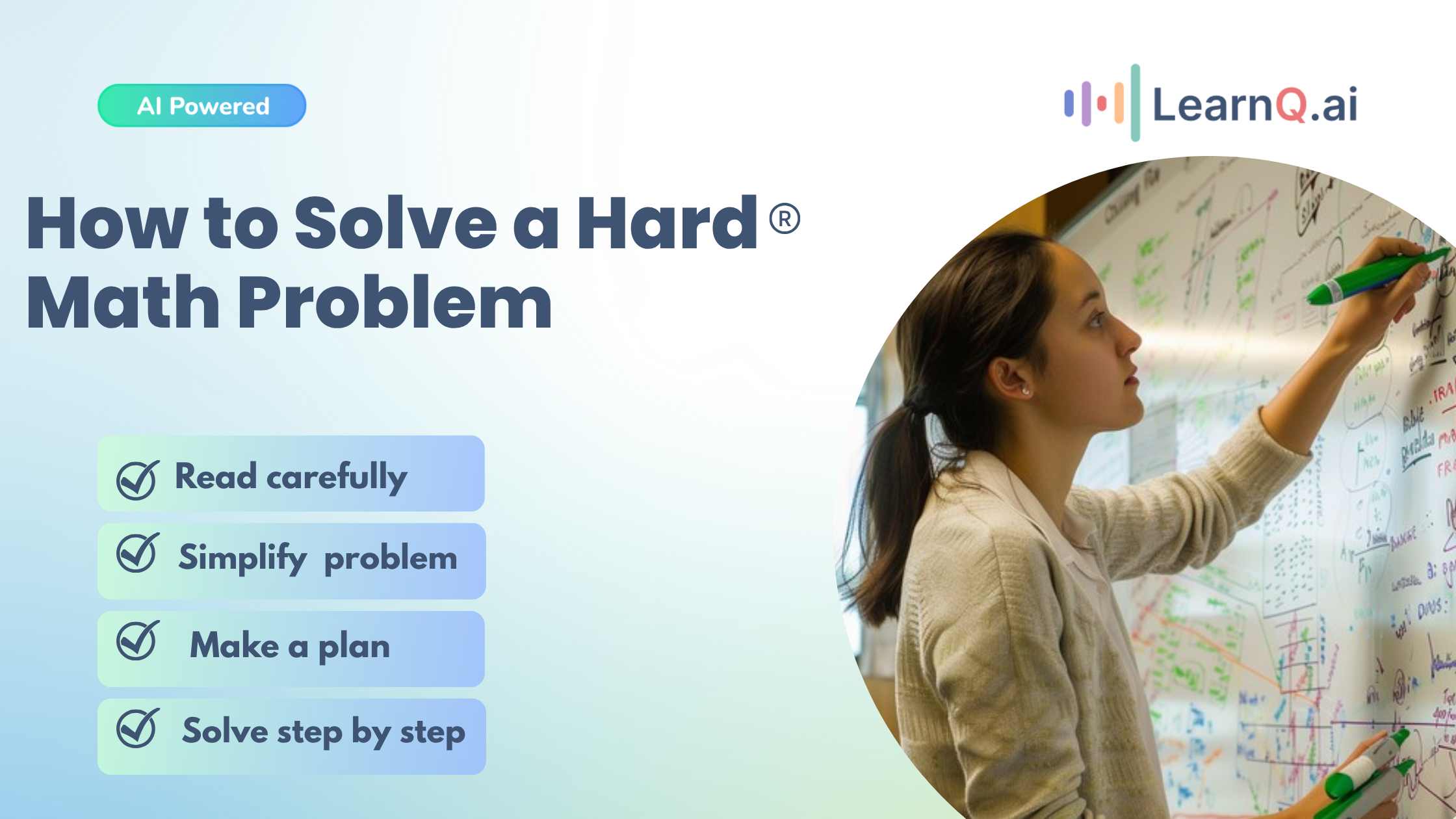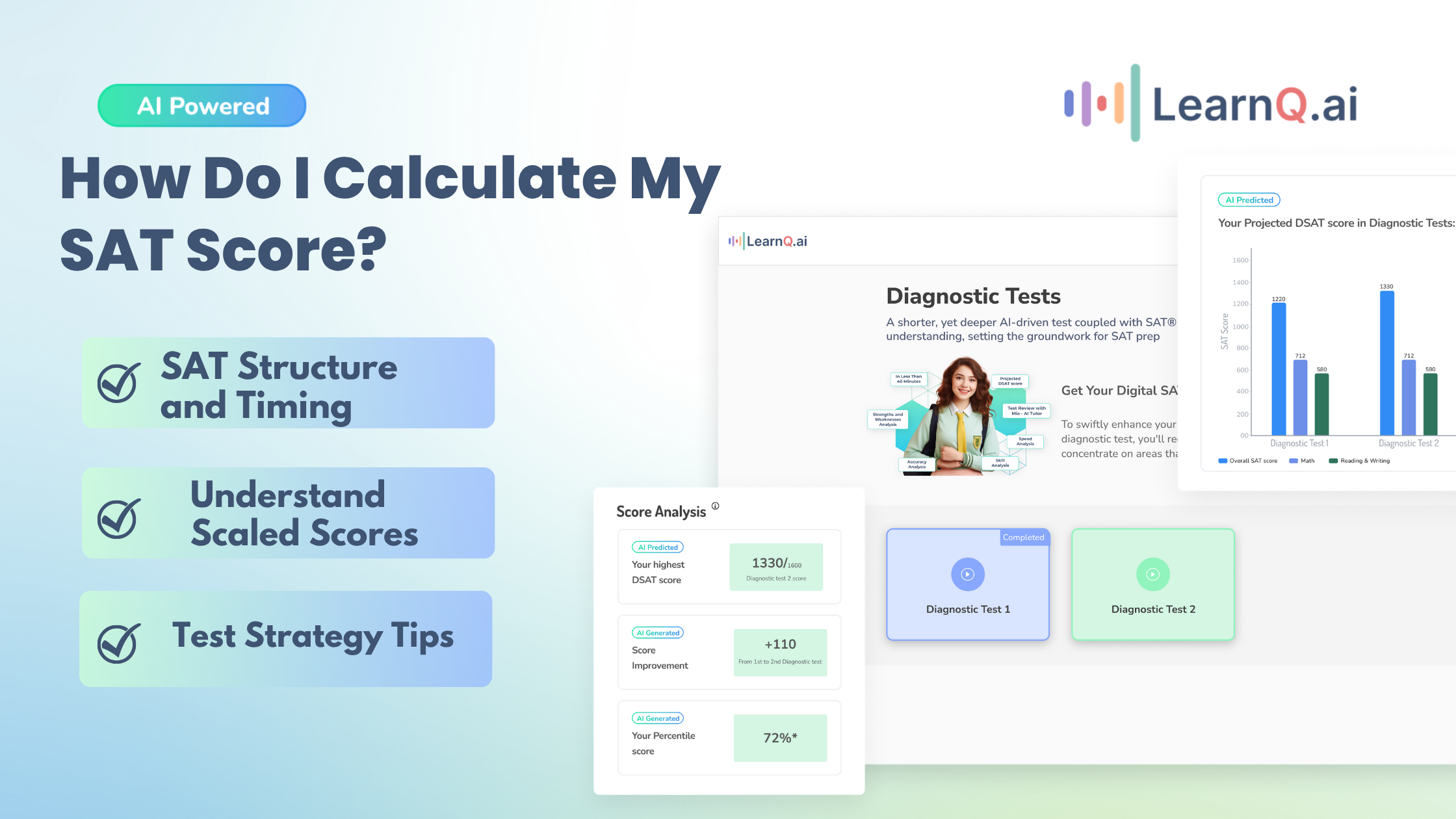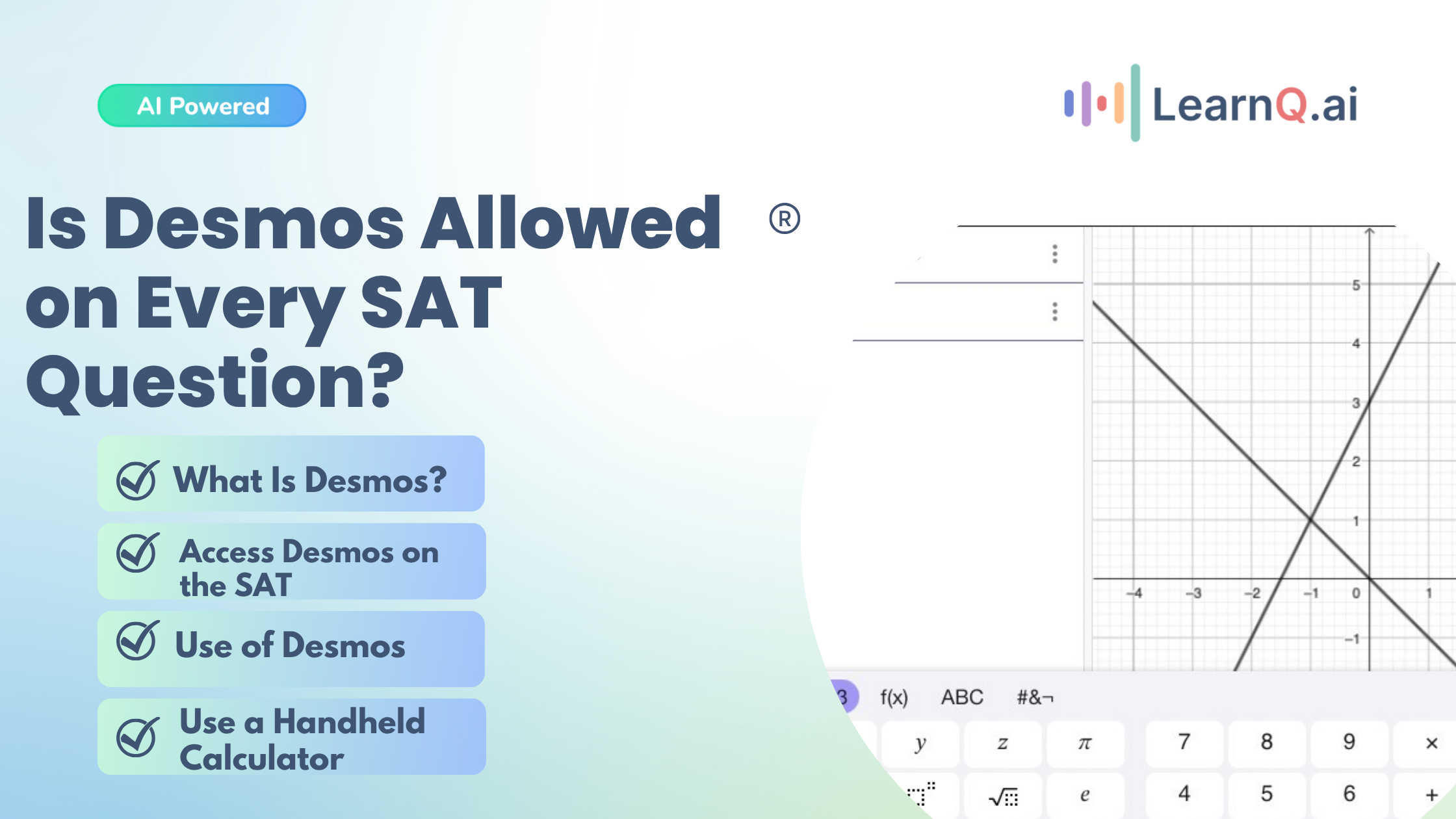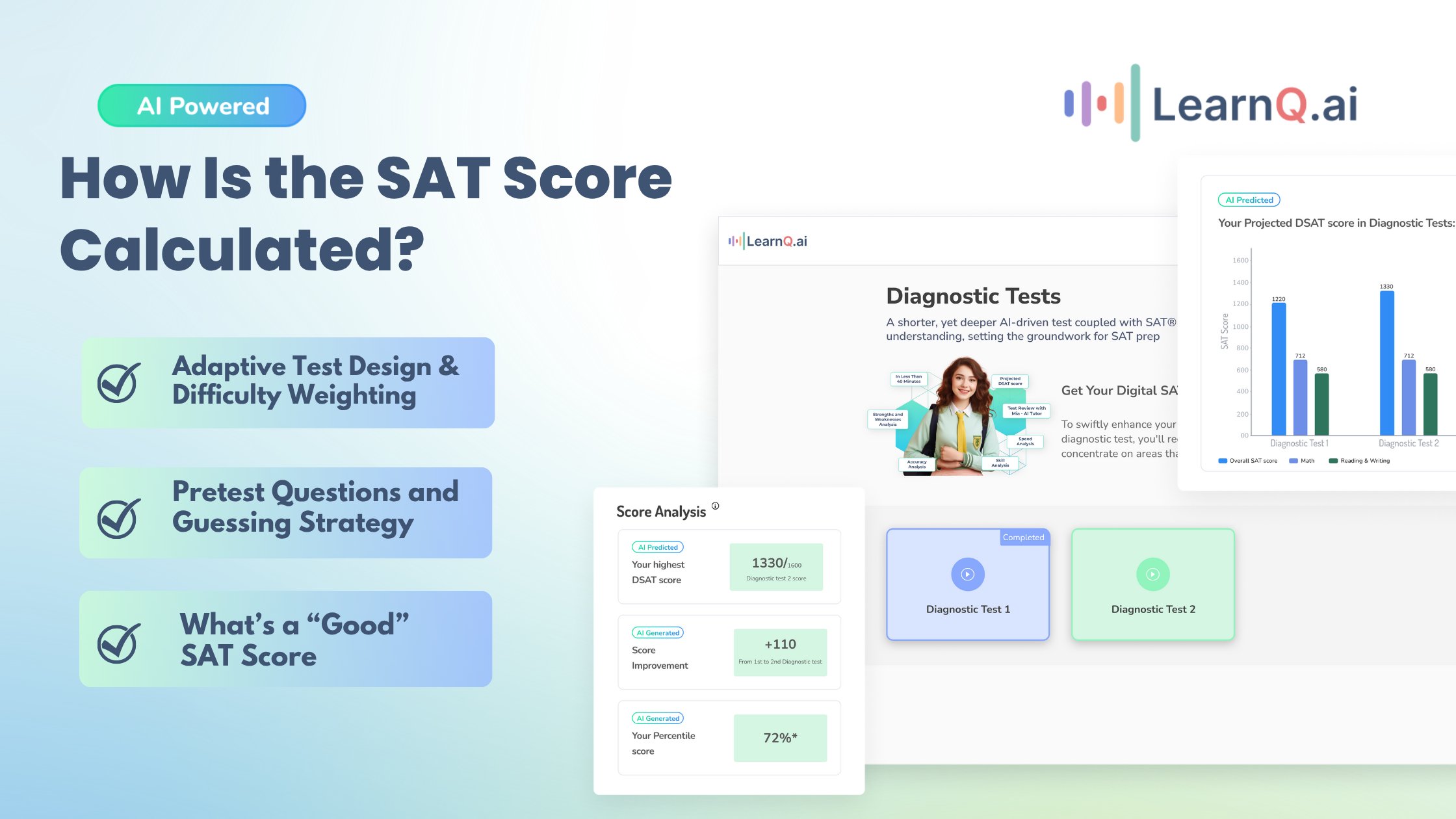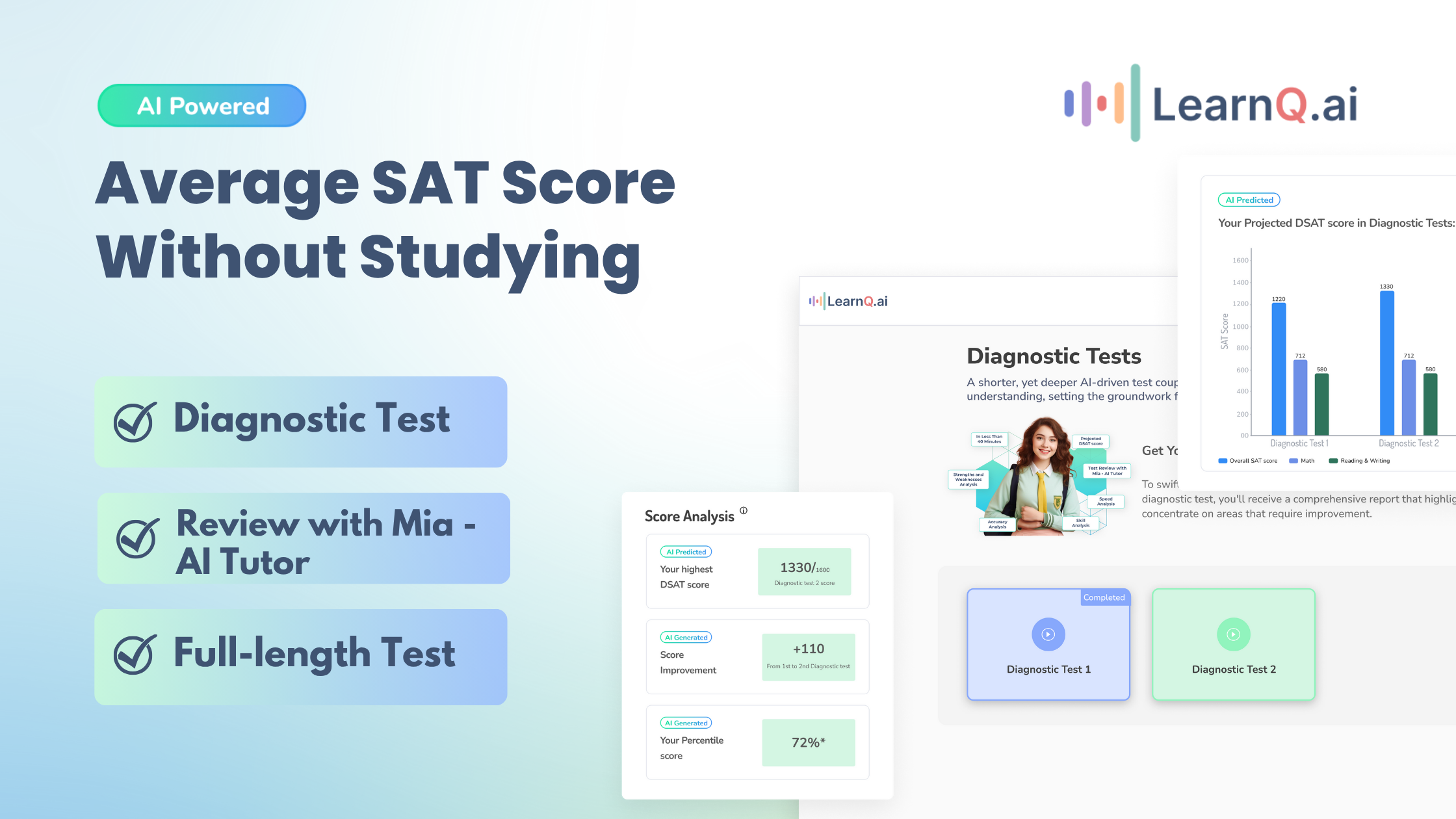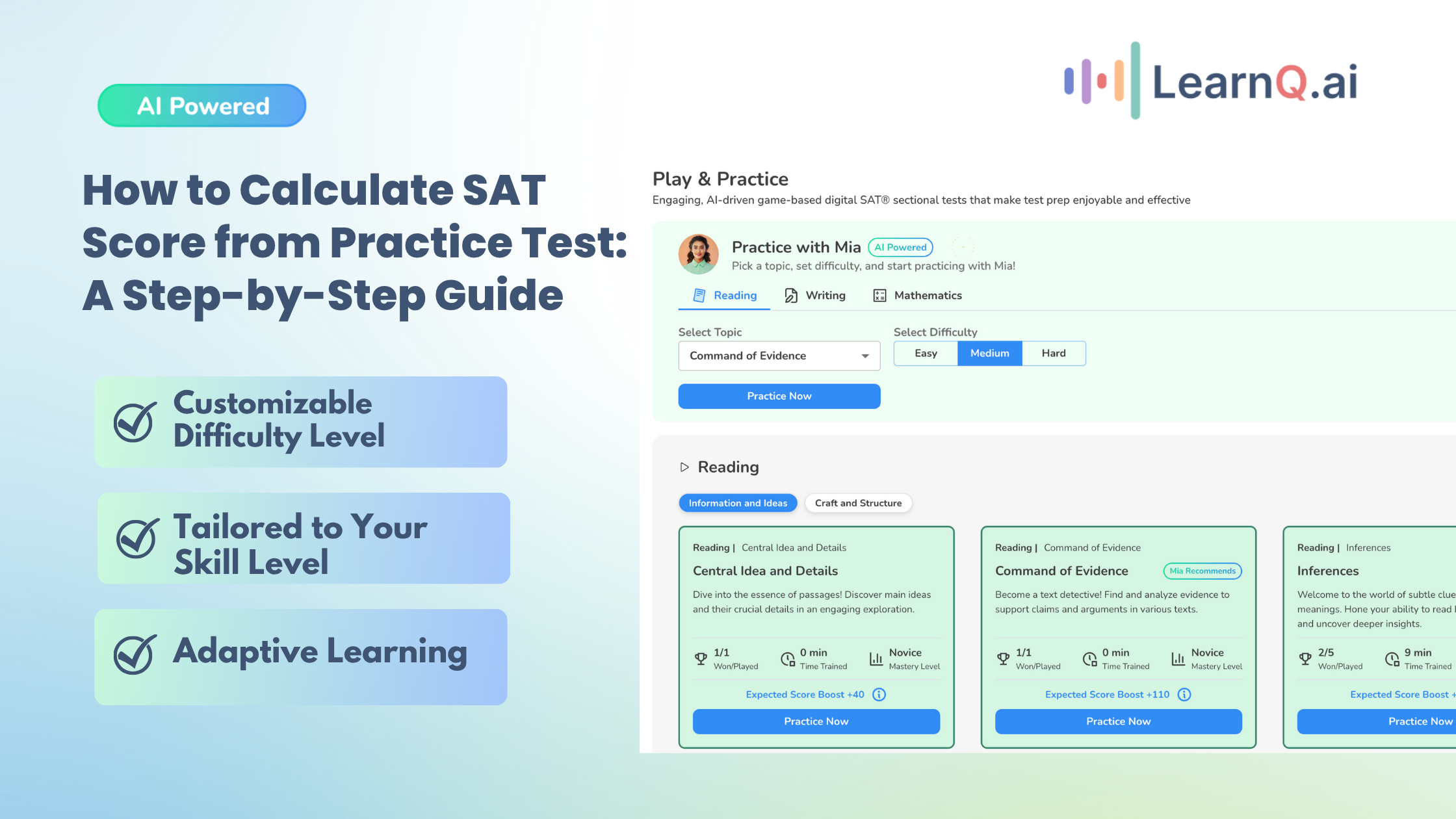A solid grasp of arithmetic is the key to doing well in the KS2 SATs, especially for students close to meeting their expected math level. Since the arithmetic test focuses on straightforward calculations, it is the easiest of the three exams to prepare for.
LearnQ.ai offers tips on how to get students up to speed on the arithmetic skills they’ll need on the test and explains why practicing these skills is a valuable way to study for the KS2 SATs.
This article further explores the most effective methods to prepare for the arithmetic SAT questions section of the KS2 Arithmetic SATs. We’ll also examine the typical question types that students are likely to encounter and explain why incorporating arithmetic practice into SATs revision is beneficial for their preparation.
Mastering Arithmetic for Year 6 KS2 SATs
Mastering the arithmetic section is not just a task; it’s a journey of achievement for Year 6 students aiming for success in their KS2 Digital SATs. The foundational skills that they learn at this level form the backbone of more complex mathematical concepts and ensure students are well-prepared for secondary education.
A solid understanding of arithmetic enhances problem-solving abilities and boosts overall academic confidence. With the proper techniques and resources, students can excel in their SATs and beyond. This guide will explore practical strategies for achieving arithmetic mastery and succeeding in arithmetic SAT scores.
LearnQ.ai is Powered by VEGA AI—Is your Institute Next?
Give students a Duolingo-style test-prep platform with Shopify-level customization for tutors and institutes.
The Role of Practice Arithmetic SAT questions
Practice questions are not just tools. They are the key to unlocking your potential in the arithmetic section of the KS2 Arithmetic SATs.
They help you familiarise yourself with the test format,
Identify areas of weakness and improve their speed and accuracy.
Regular practice builds confidence and reduces exam anxiety, ensuring they perform at their best on test day.
Students can reinforce their learning and achieve better results by consistently solving through arithmetic SAT questions.
Understanding the Structure of Year 6 Arithmetic SATs
This section delves into the benefits and best practices for using practice questions effectively, giving you a sense of control over your preparation.
Let’s dive into the Year 6 Arithmetic Digital SATs structure, so you know exactly what to expect.
This test focuses on your skills in basic math operations and problem-solving. Understanding the format helps you manage your time better and provides a sense of security, allowing you to tackle each question confidently. We’ll walk you through the essential parts and types of arithmetic sats questions you’ll face, ensuring you feel prepared and secure.
Definition and Objectives of Arithmetic Questions in KS2 SATs
Arithmetic questions in KS2 SATs are all about testing your basic math skills. They cover addition, subtraction, multiplication, and division to see how well you can handle everyday math problems.
The main goal is to ensure your comfort with these fundamental operations before moving on to more complex math in secondary school. Understanding these objectives can help you focus your practice and improve your skills.
Key Mathematical Concepts Covered
Arithmetic SAT questions cover a range of Year 6 mathematical concepts, including:
Addition
Subtraction
Multiplication
Division
Fractions
Percentages
Decimals
The Benefits of Utilizing Year 6 Arithmetic Question Banks
Hey, listen! Don’t worry if you’re feeling nervous about the KS2 SATs arithmetic test. Having these practice arithmetic SAT questions at your fingertips is a superpower, no matter what. Here’s why:
By trying out many different questions, you can see exactly what you’ve nailed and where you might need extra help.
The more arithmetic SATS questions you practice, the more comfortable you’ll get with all the different types that might pop up on the test.
Regular practice with various arithmetic SAT questions allows teachers to track student progress and identify areas needing extra attention.
Addressing these learning gaps strengthens understanding and corrects any misconceptions.
As students become accustomed to the types and format of arithmetic SATS questions, they can answer them more efficiently, building confidence for the official SATs.
Frequent practice helps reduce test anxiety by familiarizing students with the SAT format and question styles.
Exposure to a broader range of questions makes the test more predictable, calming nerves.
Practicing under timed conditions prepares students for the structure and pace of the actual SATs, ensuring they can complete the test within the allotted time.
Want to ace your KS2 SATs? LearnQ.ai has you covered! Our massive collection of practice arithmetic SAT questions will help you build your skills and confidence so you can conquer test day!
Key Focus Areas in KS2 Arithmetic SATs Questions
The Digital SAT assesses students on core arithmetic skills. Two main areas dominate the test: calculations and fractions, which comprise decimals and percentages. While a few other concepts might appear, mastering these two will set your child up for success on test day.
Focus on Calculations, Fractions, Decimals, and Percentages
Mastering all four operations (addition, subtraction, multiplication, and division) is crucial.
Competency in converting between these forms of Fractions, Decimals, and Percentages and applying them in problem-solving is essential. These domains account for between 75% and 85% of the arithmetic paper each year, with substantially fewer questions outside this domain.
Overview of the Test Structure
Number of arithmetic questions by content domain in the KS2 arithmetic SATs question paper:
Arithmetic Paper | Questions in the Content Domain | |||
Number and Place Value | Calculation | Fraction and Decimal | Ratio and Proportion | |
2022 | 1 | 18 | 14 | 3 |
2023 | 1 | 18 | 14 | 3 |
The Importance of Timed Practice Sessions
Mastering the Arithmetic SAT section is about more than just knowing the content. It’s about conquering time pressure. That’s where timed practice sessions come in. These sessions are designed to mimic the KS2 test format and build your strategic thinking. They expose your weaknesses and refine your test-taking techniques, leading to a confident and high-scoring performance on the actual SAT. So, don’t just study; practice under actual conditions!
Familiarize yourself with the KS2 Arithmetic SAT Questions through timed sessions.
Dive into the KS2 SAT format with practice sessions that mimic the test experience.
You can adapt to time pressure and navigate the digital interface with confidence.
Boosting calculation speed and accuracy
Sharpen your arithmetic skills with targeted practice designed to increase your calculation speed.
Eliminate careless errors and achieve peak accuracy under timed conditions.
Reinforcing arithmetic skills in a test-setting environment
Apply your arithmetic knowledge in a simulated test environment, solidifying your understanding.
Identify areas needing improvement and focus your efforts for optimal test performance.
Examples of Year 6 Arithmetic SAT Questions
Ready to conquer Year 6 Arithmetic?
Sharpen your pencils or grab your digital device! This practice pack covers the most essential parts: addition, subtraction, multiplication, division, fractions, decimals, and percentages. These skills make up most of the arithmetic test, so get ready to master them!
Learnq.ai has SAT-style questions waiting to challenge you!
Enhance your Digital SAT study routine with AI-driven insights and personalized practice tests.
Practice Arithmetic Sat Questions for Addition, Subtraction, Multiplication, Division
Arithmetic Question 1
692+100
Answer = 792
Arithmetic Question 2
66 + 486 =
Answer: 552
Arithmetic Question 3
____ = 6584 + 7498
Answer: 14,082
Arithmetic Question 4
58,636 + _______ = 93,472
Answer: 152,108
Arithmetic Question 5
903 – 10 =
Answer: 893
Arithmetic Question 6
523 – 68 =
Answer: 455
Arithmetic Question 7
339 x 10 =
Answer: 3,390
Arithmetic Question 8
2 x 6 x 40 =
Answer: 480
Arithmetic Question 9
7 x 658 =
Answer: 4,606
Arithmetic Question 10
473 x 56 =
Answer: 26,488
Arithmetic Question 11
339 x 10 =
Answer: 3,390
Arithmetic Question 12
64 x 7.3 =
Answer: 467.2
Arithmetic Question 13
863 ÷ 10 =
Answer: 86.3
Arithmetic Question 14
______= 438 ÷ 3
Answer: 146
Arithmetic Question 15
63.8 ÷ 100 =
Answer: 0.638
Arithmetic Question 16
7536 ÷ 12 =
Answer: 628
Questions on Fractions, Percentages, and Decimals for Arithmetic SAT Section Fractions
Arithmetic Question 17
7/8 -1/3 =
Answer:13/24
Arithmetic Question 18
3/4+2/5=
Answer: 23/20
Arithmetic Question 19
3/4 * 5/8
Answer= 15/32
Arithmetic Question 20
10% of 970 =
Answer: 97
Arithmetic Question 21
5% of 460 =
Answer: 23
Arithmetic Question 22
6.7 + 5.836 =
Answer: 12,536
Arithmetic Question 23
952.3 – 48.96 =
Answer: 903.34
Arithmetic Question 24
747.78 – ______ = 378.83
Answer: 368.95

Additional Resources for Arithmetic SAT Preparation
Need extra help with Arithmetic SAT questions? Don't worry. We've got you covered! Find various resources to boost your child's confidence and secure their KS2 Arithmetic test success! Boost your child's confidence and performance in their KS2 Arithmetic SATs with LearnQ.ai's comprehensive practice resources.
With detailed explanations and instant feedback, students can identify and focus on their areas of improvement. Interactive and engaging practice sessions make learning enjoyable and effective.
Join LearnQ.ai today to give your child the best chance of success in their SATs and beyond.
Special Focus on Arithmetic Packs for Enhanced Preparation
Enhance your preparation for the KS2 Arithmetic SAT questions with our unique focus on arithmetic packs. These packs target key areas and help you master essential arithmetic skills. With a variety of arithmetic SAT questions and detailed explanations, you'll be able to tackle any difficulty. Regular practice with these packs will strengthen your understanding and boost your performance.
Dive into our arithmetic packs today and give yourself the edge for SAT success.
Guide to accessing KS2 Maths SATs Arithmetic Practice Papers
Accessing KS2 Maths SATs Arithmetic practice papers is a straightforward process that can significantly enhance your preparation.
-
Start by visiting educational websites that offer resources, such as LearnQ.ai, where you can find a comprehensive range of practice papers.
-
These papers are designed to mirror the format and content of the actual SATs, providing a realistic practice experience.
-
Additionally, many platforms offer downloadable PDFs that you can print out for offline practice.
-
Combine these resources with timed sessions to simulate the exam environment and maximize your practice. This will help you build confidence and improve your performance on test day.
Explore LearnQ.ai's Arithmetic practice papers for.
Our platform offers extensive arithmetic SAT questions tailored to the KS2 curriculum, ensuring thorough preparation.
Tips for Effective Practice and Revision for Digital SAT Year 6 Mathematics
-
Set a Study Schedule: Create a consistent study routine to cover all the topics. Allocate specific times for different a to ensure balanced preparation.
-
Use Practice Tests: Regularly take full-length practice tests to familiarize yourself with the format and timing of the digital SAT. This helps you manage your time effectively during the actual test.
-
Focus on Weak Areas: Identify the challenging topics and spend extra time working on them. Use targeted practice questions to improve your understanding and skills in these areas.
-
Review Mistakes: After completing practice arithmetic SAT questions or tests, thoroughly review your mistakes. Understand where you went wrong and learn the correct methods to avoid repeating the same errors.
-
Use Digital Tools: Utilize online resources and digital tools that simulate the SAT testing environment. This will help you become comfortable with the digital format and the tools available during the test.
-
Stay Consistent: Consistency is key. Make sure to revise regularly and avoid cramming. Regular, spaced-out revision sessions are more effective than last-minute studying.
-
Take Breaks: Ensure you take short breaks during your study sessions to avoid burnout. A fresh mind can absorb information better and improve your overall retention.
-
Seek Help When Needed: Don’t hesitate to ask for help from teachers, tutors, or classmates if you’re struggling with specific topics. Sometimes, a different perspective can make a big difference.
-
Stay Positive and Motivated: Keep a positive attitude and remind yourself of your goals. Celebrate small victories along the way to stay motivated and confident in your preparation.
-
Practice Under Exam Conditions: When practicing arithmetic SATs questions, try to replicate exam conducting. This means working in a quiet environment, timing yourself, and avoiding distractions. This will help you build endurance and focus for the actual test day.
Further Study and Practice Materials
Learning arithmetic operations effectively is essential for KS2 SATs preparation, and our comprehensive guides make this process seamless. Our guides cover all the fundamental operations: addition, subtraction, multiplication, and division, each with step-by-step instructions and practical examples. You'll find clear explanations and visual aids to help students grasp the concepts quickly.
Additionally, we provide a variety of practice problems and real-world applications to reinforce learning and build confidence. Whether a teacher or a parent, these guides will equip you with the tools to support your child's success in KS2 Arithmetic Maths.
Comprehensive Study and Practice Materials on KS2 Arithmetic
Arithmetic forms the foundation of mathematics and is a crucial skill for students in KS2 (Key Stage 2). Comprehensive study and practice materials can significantly enhance students' understanding and performance in arithmetic. Here's a detailed guide on the best resources and methods to master KS2 arithmetic.
Textbooks and Workbooks
Textbooks and workbooks designed explicitly for KS2 arithmetic provide structured learning paths, covering all necessary topics such as addition, subtraction, multiplication, division, fractions, and percentages. Some highly recommended ones include:
KS2 Maths Question Book - Year 6 by Collins
These books offer clear explanations, step-by-step examples, and a variety of practice arithmetic SAT questions to reinforce learning.
Online Learning Platforms
Online learning platforms like LearnQ.ai, BBC Bitesize, and MyMaths offer interactive lessons, video tutorials, and quizzes tailored for KS2 students. These platforms provide:
-
Engaging and interactive content that helps students visualize mathematical concepts.
-
Immediate feedback on quizzes and practice exercises to help identify areas for improvement.
For instance, LearnQ.ai provides comprehensive KS2 arithmetic resources, including videos, games, and practice questions, making learning fun and effective.
Printable Worksheets
Printable worksheets are a great way to practice arithmetic problems offline. Websites like Twinkl and LearnQ.ai offer a plethora of free and premium worksheets covering all aspects of KS2, especially arithmetic SAT questions. These worksheets can be used for additional practice at home or in the classroom.
LearnQ.ai offers a wide range of KS2 arithmetic worksheets aligned with the National Curriculum, providing targeted practice on specific topics like long division or fractions.
Educational Apps
Educational apps can make arithmetic practice more engaging and accessible. Apps like Mathletics, Prodigy, and SplashLearn offer gamified learning experiences that motivate students to practice more frequently. These apps often include:
-
Adaptive learning paths that adjust the difficulty level based on the student's performance.
-
Rewards and achievements to keep students motivated.
For example, Prodigy is a math game that combines role-playing with math practice, allowing students to solve arithmetic problems to progress through the game.
Practice Papers and Mock Tests
Practice papers and mock tests are essential for preparing for KS2 SATs. These resources help students familiarize themselves with the format and the arithmetic SAT questions they can encounter in the tests. Websites like SATs Bootcamp and LearnQ.ai offer past papers and mock tests for thorough practice.
SATs Bootcamp provides an extensive collection of past KS2 SAT papers and detailed mark schemes and answers, enabling students to practice under exam conditions.
Tutoring and Extra Classes
Tutoring and extra classes can provide personalized support for students struggling with arithmetic. Tutors can tailor their teaching methods to suit students' needs, ensuring they grasp complex concepts effectively. Many tutoring centers and online tutoring services offer specialized KS2 arithmetic programs.
LearnQ.ai offers personalized math tutoring for KS2 students, focusing on building confidence and improving skills through one-on-one sessions.
Real-Life Applications
Incorporating real-life arithmetic applications into study materials helps students understand the relevance of their learning. This can be done through project-based learning, where students apply arithmetic to solve real-world problems such as budgeting, measuring ingredients for a recipe, or planning a trip.
Example: A classroom project where students create a budget for a school event, calculate costs, and make decisions based on their arithmetic calculations can make learning more practical and engaging.
Simple Creative Methods to Mastering Fractions, Percentages, and Decimals for Your Kids
There are several ways to help your child practice arithmetic sats questions at home, and here are a few:
Shopping Challenges
When you're out shopping, get your child to calculate discounts on sale items or figure out fractions of amounts when weighing fruits and vegetables. You can mix it up by including decimals. Here are a few examples:
"This item is 20% off. What is 20% of the price, and how much will it be after the discount?"
"The price is $1.50 per kilo, but we only need half a kilo. How much will that cost?"
"We save ⅓ when we buy two of these. How much are we saving?"
Using Money for Fractions, Decimals, and Percentages
Money is a great tool for helping your child understand fractions, decimals, and percentages. Here are some activities you can try:
Give your child different amounts of money using coins and ask them to write them using decimals. Start with a pound coin and vary the other coins to help them understand the value of hundreds, tens, and ones.
Hand them a $5 note and the equivalent in coins, then ask them to figure out what ½ or 75% of £$5 would be in coins.
Baking and Calculating
Baking is a fantastic way to practice math. Recipes often call for measurements like ½ cup or 100.5 grams of flour. Get your child involved in baking so they can see how fractions, decimals, and percentages are used in real life.
Make Your Decimal Stick
A visual aid like a decimal stick can be a powerful tool for teaching decimals. You'll need a stick and some paper. Mark 0 on one end and one on the other, then ask your child to place where 0.9 should go. Continue placing other decimals along the stick to help them visualize the concept.
LearnQ.ai is powered by VEGA AI—Is your institute next?
Offer students a Duolingo-style test-prep platform with Shopify-level customization for tutors and institutes.






Conclusion
Comprehensive study and practice materials for KS2 arithmetic sat questions are crucial for building a solid mathematical foundation. Students can develop a deep understanding and proficiency in arithmetic by utilizing a combination of textbooks, online resources, worksheets, educational apps, practice papers, tutoring, and real-life applications to crack arithmetic sat questions. These resources not only prepare students for exams but also equip them with essential skills for everyday life.
Nail your Year 6 Arithmetic SATs with LearnQ.ai! Master KS2 math concepts with our AI-powered practice questions. Adaptive learning keeps you challenged, boosting your confidence for test day. Try LearnQ.ai today!
Frequently Asked Questions about Year 6 Arithmetic SATs
1. How long is the test, and how is it marked?
-
The test lasts for 30 minutes.
-
Most questions are worth one mark, with long multiplication and division questions valued at two marks.
-
You may get one mark for showing a correct method even if you don't get the final answer right.
2. What's a good score on the Arithmetic SATs?
There isn't a single "good" score as the results are used alongside teacher assessment throughout the year. However, aiming to answer most questions correctly will put your child in a strong position.
3. What's the format of the Year 6 Arithmetic SATs?
The test lasts 30 minutes and has 36 questions worth 40 marks. It covers various areas like addition, subtraction, multiplication, division, fractions, and decimals. Calculators are not allowed, so focus on mental math and knowing your times tables!

